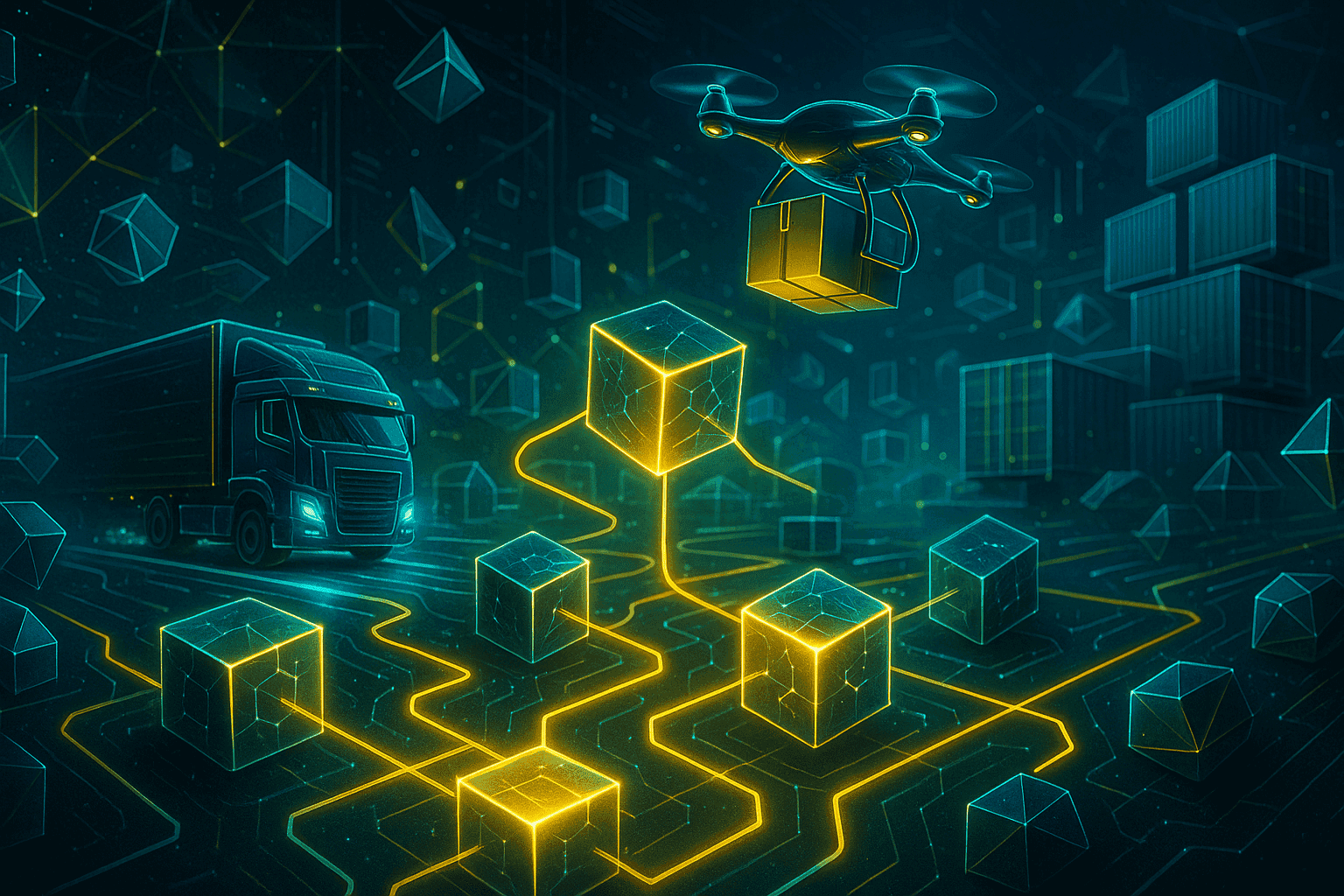Behind an online purchase there is a long and complex logistics distribution network that faces many constant challenges. Lack of transparency, communication problems between different actors and the difficulty to trace products, what this leads to is that many companies decide to make use of blockchain in logistics.
What exactly is blockchain in logistics?
The blockchain is a technology that is like a shared ledger shared by everyone who wants to access it. Each page (block) of the ledger contains information about transactions, that information can no longer be deleted or changed.
IBM comments that it, consists of an immutable system where you have access to track transactions and assets through a distributed network. These assets can be any sector, from pharmaceuticals, educational degrees, companies, agricultural products, and everything is recorded permanently and securely.
How is blockchain applied in logistics? Implementing the technology to be able to immediately see and be aware of changes occurring in the supply chain in real time. In this way, logistics companies optimize routes, eliminate processes with unnecessary costs, but most importantly, increase transparency and security of the entire distribution process of each product.
How does blockchain work in logistics?
The functioning of blockchain in logistics has 3 very important pillars:
- Distributed ledger: place where everything is recorded without being able to modify permanently and in real time.
- Permanent records: Every movement is recorded forever.
- Smart contracts: Everything is automatically executed according to the fulfillment of the established conditions.
As soon as a product moves through the supply chain, the information is encrypted, recorded on the blockchain and shared with all network participants. Anyone can access the information but no one can modify it without the consensus of all, this generates trust and greater security.
The main uses of blockchain in logistics
Full traceability from the origin
How is blockchain used in supply chain management? One of its most important implementations apart from many others is the continuous and real-time tracking of the product from the time it is manufactured until it reaches the final consumer. In sectors such as food and pharmaceuticals, which must have a more extreme attention due to the safety and health of the consumer, it will be crucial to implement blockchain technology to have a continuous tracking of all processes.
Transportation optimization and shipping
Companies with large commodities such as Maersk already make use of blockchain to track products as they cross international borders. They already have a very advantageous point over other freight distribution companies as they drastically reduce errors, speed up deliveries and solve problems with delays or losses immediately.
Automated payment and billing management
How is blockchain used in freight forwarding? Smart contracts automate many processes such as payments when delivering products, eliminating disputes and reducing auditing costs. International payments are faster and more secure.
Identity verification and increased trust
In large international logistics chains, the blockchain plays a very important role, recording and protecting the identities of all participants, increasing internal transparency and building trust between parties.
Applications of blockchain technology in logistics
Exhaustive inventory control
What is blockchain in logistics? applied to the entire distribution of products to track batches quickly and efficiently. We detect problems immediately, avoid counterfeits and control expiration dates in real time.
Sustainability certification
Consumers always want to be sure that the product arrives safely and is of high quality. Blockchain makes it possible to transparently demonstrate and certify the origin and processes of the product since its manufacture began.
Smart contracts to simplify processes
Contracts are automatically executed once the agreed conditions are met, thus eliminating intermediaries and reducing administrative processes as well as costs.
Advantages of blockchain in logistics
Transparency and full traceability
We have access to the entire logistics chain in real time, allowing us to analyze each process and identify where we can improve.
Security and data protection
Immutable records and decentralized verification dramatically reduce the risk of fraud and information manipulation.
Operational efficiency
The logistics blockchain market size exceeded $19.5 billion in 2023 and is poised to expand at a compound annual rate of around 45% between 2024 and 2032, demonstrating its growing impact on industry efficiency.
The market size of blockchain in logistics has surpassed $19.5 billion in 2023 and is set to expand at an annual rate of about 45% between 2024 and 2032, demonstrating the large adoption brought by this great technology.
Cost reduction
By eliminating administrative processes, intermediaries and automating each logistical process the savings are quite remarkable.
Success stories: Companies that are already using it
Large companies have already implemented blockchain with exceptional results:
- Maersk: Digitization of documents and improved shipment traceability.
- DHL: Optimization of supply chain management.
- UPS: Improved traceability and theft prevention.
- FedEx: Streamlining customs processes.
The implementation of blockchain in logistics and in many other sectors, even in electoral processes, is not something fleeting; the technology is here to stay. Companies or sectors that adopt blockchain at an early age will have a great competitive advantage over other companies.
